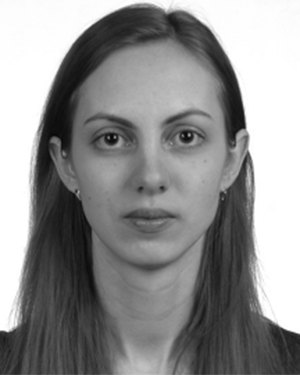Abstract:
Due to the unprecedented growth in available data collected by e-learning platforms, including platforms used by massive open online course (MOOC) providers, important op...Show MoreMetadata
Abstract:
Due to the unprecedented growth in available data collected by e-learning platforms, including platforms used by massive open online course (MOOC) providers, important opportunities arise to structurally use these data for decision making and improvement of the educational offering. Student retention is a strategic task that can be supported by means of automated data-driven dropout prediction. Given the time-based nature of the collected data (user activity), these data can be viewed as sequences, and thus, sequence mining presents itself as a fitting set of techniques to automatically extract valuable insights. However, there is a lack of general guidelines for using sequence mining in specific educational settings, as well as little information on how different techniques perform in comparison to each other. We address these limitations with two main contributions. First, we propose a framework for applying sequence classification for dropout prediction in MOOCs. This framework includes two data-driven dropout definitions, the specification of data formatting and preparation tasks, and a blackprint on how to train dropout prediction models at suitable time points in the run of the course. Second, we conduct a benchmarking study of recent and well-performing sequence classification techniques, tested with different parametrizations on 47 real-life datasets from MOOCs, resulting in a comparative assessment of over 18 000 models. Our results provide insight into the performance differences between the techniques and allow us to formulate concrete recommendations toward the choice of suitable hyperparameters that have a significant influence on the predictive performance.
Published in: IEEE Transactions on Learning Technologies ( Volume: 15, Issue: 6, 01 December 2022)

Research Centre for Information Systems Engineering (LIRIS), KU Leuven, Leuven, Belgium
Galina Deeva received the Ph.D. degree in business economics from the Department of Decision Sciences and Information Management, KU Leuven, Leuven, Belgium, in 2021, focusing on behavioral data analytics in e-learning environments.
Her research interests include business analytics, process mining, sequence mining, machine learning, and trusted AI.
Galina Deeva received the Ph.D. degree in business economics from the Department of Decision Sciences and Information Management, KU Leuven, Leuven, Belgium, in 2021, focusing on behavioral data analytics in e-learning environments.
Her research interests include business analytics, process mining, sequence mining, machine learning, and trusted AI.View more

Research Centre for Information Systems Engineering (LIRIS), KU Leuven, Leuven, Belgium
Johannes De Smedt received the Ph.D. degree in business economics from KU Leuven, Leuven, Belgium, in 2016.
He is currently an Assistant Professor with the Department of Decision Sciences and Information Management, KU Leuven. After completing the Ph.D. degree, he was a Lecturer in business analytics with the University of Edinburgh Business School. His research interests include constraint-based process modeling and minin...Show More
Johannes De Smedt received the Ph.D. degree in business economics from KU Leuven, Leuven, Belgium, in 2016.
He is currently an Assistant Professor with the Department of Decision Sciences and Information Management, KU Leuven. After completing the Ph.D. degree, he was a Lecturer in business analytics with the University of Edinburgh Business School. His research interests include constraint-based process modeling and minin...View more

Research Centre for Information Systems Engineering (LIRIS), KU Leuven, Leuven, Belgium
Jochen De Weerdt received the Ph.D. degree in business economics from KU Leuven, Leuven, Belgium, in 2012.
He is currently an Associate Professor with the Department of Decision Sciences and Information Management, KU Leuven. Subsequently, he was a Postdoctoral Research Fellow with the Queensland University of Technology, Brisbane, Australia. His research interests include business analytics, process mining, machine learni...Show More
Jochen De Weerdt received the Ph.D. degree in business economics from KU Leuven, Leuven, Belgium, in 2012.
He is currently an Associate Professor with the Department of Decision Sciences and Information Management, KU Leuven. Subsequently, he was a Postdoctoral Research Fellow with the Queensland University of Technology, Brisbane, Australia. His research interests include business analytics, process mining, machine learni...View more

Research Centre for Information Systems Engineering (LIRIS), KU Leuven, Leuven, Belgium
Galina Deeva received the Ph.D. degree in business economics from the Department of Decision Sciences and Information Management, KU Leuven, Leuven, Belgium, in 2021, focusing on behavioral data analytics in e-learning environments.
Her research interests include business analytics, process mining, sequence mining, machine learning, and trusted AI.
Galina Deeva received the Ph.D. degree in business economics from the Department of Decision Sciences and Information Management, KU Leuven, Leuven, Belgium, in 2021, focusing on behavioral data analytics in e-learning environments.
Her research interests include business analytics, process mining, sequence mining, machine learning, and trusted AI.View more

Research Centre for Information Systems Engineering (LIRIS), KU Leuven, Leuven, Belgium
Johannes De Smedt received the Ph.D. degree in business economics from KU Leuven, Leuven, Belgium, in 2016.
He is currently an Assistant Professor with the Department of Decision Sciences and Information Management, KU Leuven. After completing the Ph.D. degree, he was a Lecturer in business analytics with the University of Edinburgh Business School. His research interests include constraint-based process modeling and mining, ontologies in processes, and sequence mining.
Johannes De Smedt received the Ph.D. degree in business economics from KU Leuven, Leuven, Belgium, in 2016.
He is currently an Assistant Professor with the Department of Decision Sciences and Information Management, KU Leuven. After completing the Ph.D. degree, he was a Lecturer in business analytics with the University of Edinburgh Business School. His research interests include constraint-based process modeling and mining, ontologies in processes, and sequence mining.View more

Research Centre for Information Systems Engineering (LIRIS), KU Leuven, Leuven, Belgium
Jochen De Weerdt received the Ph.D. degree in business economics from KU Leuven, Leuven, Belgium, in 2012.
He is currently an Associate Professor with the Department of Decision Sciences and Information Management, KU Leuven. Subsequently, he was a Postdoctoral Research Fellow with the Queensland University of Technology, Brisbane, Australia. His research interests include business analytics, process mining, machine learning, and learning analytics.
Jochen De Weerdt received the Ph.D. degree in business economics from KU Leuven, Leuven, Belgium, in 2012.
He is currently an Associate Professor with the Department of Decision Sciences and Information Management, KU Leuven. Subsequently, he was a Postdoctoral Research Fellow with the Queensland University of Technology, Brisbane, Australia. His research interests include business analytics, process mining, machine learning, and learning analytics.View more


